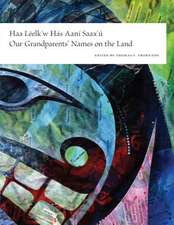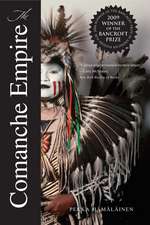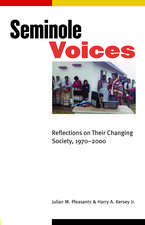A Century of Dishonor
Autor Helen Hunt Jacksonen Limba Engleză Paperback – 31 dec 2011
| Toate formatele și edițiile | Preț | Express |
|---|---|---|
| Paperback (4) | 123.06 lei 3-5 săpt. | |
| Mint Editions – mai 2021 | 123.06 lei 3-5 săpt. | |
| University of Oklahoma Press – 31 mar 1995 | 210.66 lei 3-5 săpt. | |
| Digireads.com – 31 dec 2011 | 135.90 lei 38-44 zile | |
| Lulu.Com – 24 iun 2018 | 137.76 lei 6-8 săpt. | |
| Hardback (2) | 188.28 lei 3-5 săpt. | |
| Mint Editions – 20 mai 2021 | 188.28 lei 3-5 săpt. | |
| Lulu.Com – 25 iun 2018 | 231.63 lei 6-8 săpt. |
Preț: 135.90 lei
Nou
Puncte Express: 204
Preț estimativ în valută:
26.00€ • 28.34$ • 21.91£
26.00€ • 28.34$ • 21.91£
Carte tipărită la comandă
Livrare economică 19-25 aprilie
Preluare comenzi: 021 569.72.76
Specificații
ISBN-13: 9781420944389
ISBN-10: 142094438X
Pagini: 254
Dimensiuni: 152 x 229 x 15 mm
Greutate: 0.38 kg
Editura: Digireads.com
ISBN-10: 142094438X
Pagini: 254
Dimensiuni: 152 x 229 x 15 mm
Greutate: 0.38 kg
Editura: Digireads.com
Textul de pe ultima copertă
First published in 1881 and reprinted in numerous editions since, Helen Hunt Jackson's A Century of Dishonor is a classic account of the U.S. government's flawed Indian policy and the unfair and cruel treatment afforded North American Indians by expansionist Americans. Jackson wrote the book as a polemic to "appeal to the hearts and conscience of the American people", who she hoped would demand legislative reform from Congress and redeem the country's name from the stain of a "century of dishonor". Her efforts, which constitute a landmark in Indian reform, helped begin the long process of public awareness for Indian rights that continues to the present day. Beginning with a legal brief on the original Indian right of occupancy, A Century of Dishonor continues with Jackson's analysis of how irresponsibility, dishonesty, and perfidy on the part of Americans and the U.S. government devastated the Delaware, Cheyenne, Nez Perce, Sioux, Ponca, Winnebago, and Cherokee Indians. Jackson describes the government's treatment of the Indians as "a shameful record of broken treaties and unfulfilled promises" exacerbated by "a sickening record of murder, outrage, robbery, and wrongs" committed by frontier settlers, with only an occasional Indian retaliation. Such notable events as the flight of Chief Joseph of the Nez Perce's and the Cherokee Trail of Tears illustrate Jackson's arguments.
Notă biografică
Helen Hunt Jackson (1830-1885) was an American poet and activist. Born Helen Maria Fiske in Amherst, Massachusetts, she was raised in a unitarian family alongside a sister, Anne. By seventeen years of age, she had lost both of her parents and was taken in by an uncle. Educated at Ipswich Female Seminar and the Abbott Institute, she was a classmate and friend of Emily Dickinson. At 22, she married Captain Edward Bissell Hunt, with whom she had two sons. Following the deaths of her children and husband, Hunt Jackson dedicated herself to poetry and moved to Newport in 1866. ¿Coronation¿ appeared in The Atlantic in 1869, launching Hunt Jackson¿s career and helping her find publication in The Century, The Nation, and Independent. Following several years in Europe, she visited California and developed a fascination with the American West. After contracting tuberculosis, she stayed at Seven Falls, a treatment center in Colorado Springs, where she met her second husband William Sharpless Jackson. Praised early on for her elegiac verses by such figures as Ralph Waldo Emerson, Hunt Jackson turned her attention to the plight of Native Americans in 1879 following a lecture in Boston by Ponca chief Standing Bear. She began to lobby government officials by mail and in person, launching and publishing her own investigations of systemic abuse in the New York Independent, Century Magazine, and the Daily Tribune. In 1881, she published A Century of Dishonor, a history of seven tribes who faced oppression, displacement, and genocide under American expansion. She sent her book to every member of Congress and continued to work as an activist and writer until her death from stomach cancer. Ramona (1884), a political novel, was described upon publication in the North American Review as ¿unquestionably the best novel yet produced by an American woman.¿








